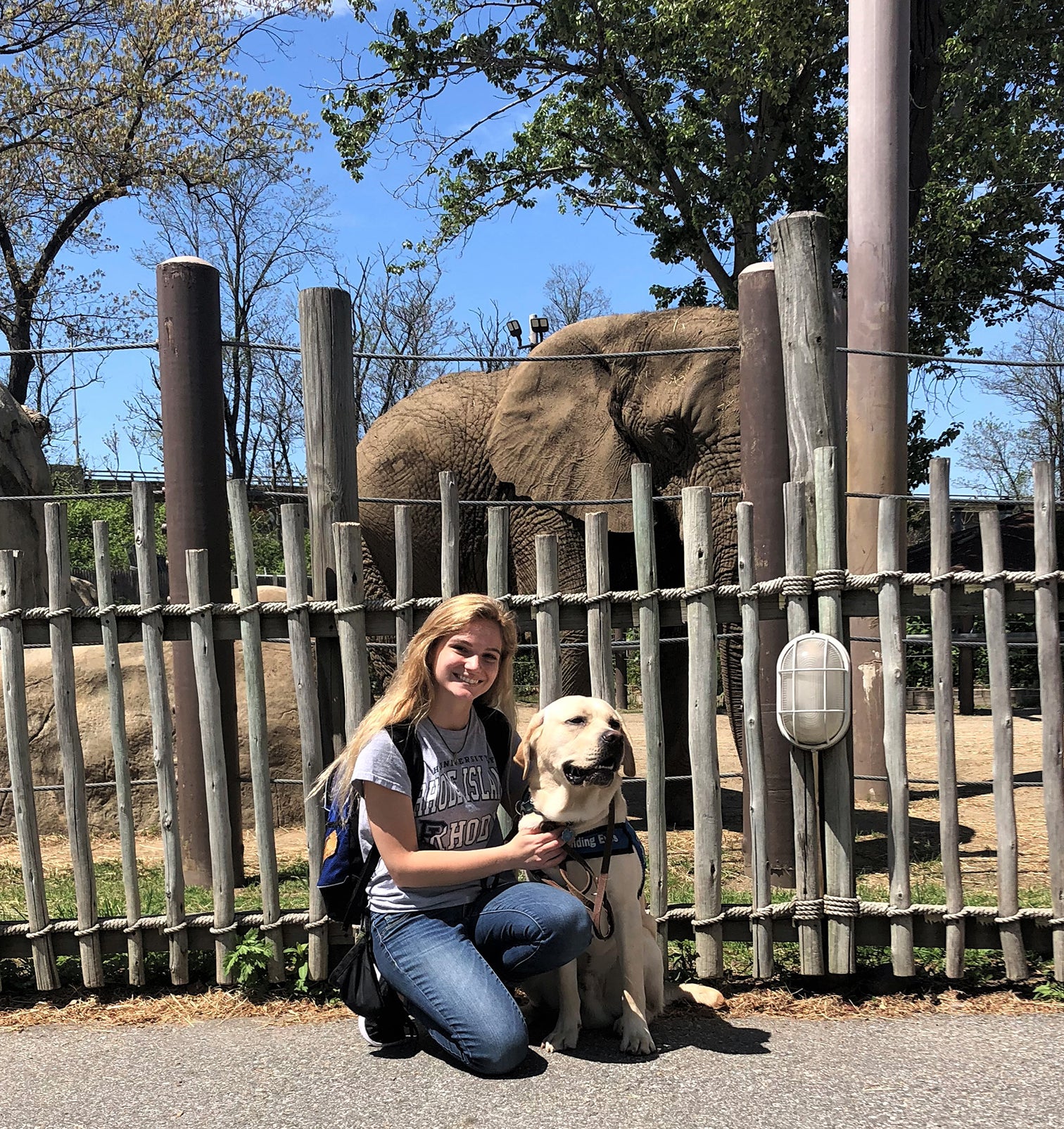KINGSTON, R.I. – October 2, 2018 – Elephants don’t sleep much in the wild, averaging just two hours per night. Even at zoos when they don’t have to watch for predators, they are awake after dark more often than they are asleep. But no one had scientifically scrutinized what they do during those long nights in zoos. Until now.
Thanks to a collaboration between the University of Rhode Island and Roger Williams Park Zoo, some answers are beginning to emerge.
Becky Provensal, a URI senior from South Kingstown, spent the summer reviewing night-time surveillance video of the zoo’s three elephants to learn about their sleeping patterns, late night behaviors, and activity levels.
“Of all the mammals that have been studied, elephants sleep the least, but there’s really no good way of measuring their sleep habits,” said Provensal, an animal science and pre-vet major working with URI post-doctoral researcher Justin Richard. “The zoo is especially interested in learning how to provide care and enrichment to the animals overnight when zookeepers aren’t there.”
She spent long hours making notes about every activity the elephants engaged in between 5 p.m. and 8 a.m. She indicated whether they were eating, drinking, laying down, leaning on something or engaging in other behaviors, and she used that data to determine when it appeared that the animals were resting and when they were active.
“The zoo can then use that information to determine what times and where in the enclosure the elephants are usually sleeping – so they shouldn’t be disturbed – and when they are awake and might want some enrichment,” Provensal said. “They’re considering using computer-programmed boxes to release food throughout the night.”
As fun as it would have been to spend her nights at the zoo observing the elephants in person, Provensal was able to gather much more data in a more efficient manner by reviewing the videos.
“It was somewhat tedious after a while – not much happens for long periods of time,” she said. “But compiling the data and finally seeing the big picture was really rewarding and interesting.”
She found that the animals appear to exhibit the same resting patterns as wild elephants – sleeping between 1 a.m. and 5 a.m. and remaining active for most of the rest of the night, when they wander from room to room, eating occasionally and engaging with whatever enrichment toys and social interactions are available.
Provensal’s research was supported by the URI Coastal Fellows program, a unique initiative designed to involve undergraduate students in addressing current environmental problems. Now in its 22nd year, it is based at URI’s College of the Environment and Life Sciences. Students are paired with a mentor and research staff to help them gain skills relevant to their academic major and future occupations.
Once convinced she was going to become a veterinarian, Provensal now thinks her future career may involve teaching the public about wildlife, perhaps in a zoo or aquarium setting.
“I would like to spend some time exploring other options before possibly applying to vet school in the future,” she said.
She has also spent three years training dogs to be service animals – she is the president of the URI Puppy Raisers Club – and she is considering a career in that field as well.
“I love being able to see my dogs grow in size and personality and overall eagerness to learn,” she said.
The first dog she trained now works in explosives detection in Miami, and the dog she trained last year is undergoing advanced training at Guiding Eyes for the Blind in New York. She just began training a third dog, which is now seven months old.
“I love exotic animals, and if a job came my way I’d definitely take it,” she said. “But I also find it so rewarding to train guide dogs, so I might go in that direction, too. In the end, I love all animals, and I wouldn’t say no to any opportunity that came my way.”

